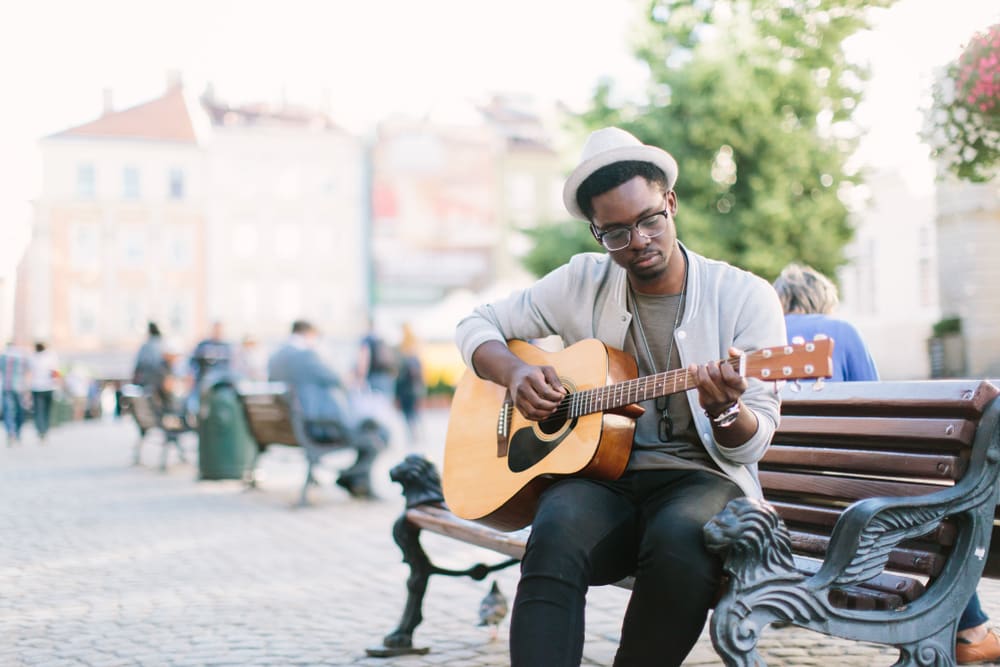How are Music Students and Musicians Handling COVID?
When the COVID-19 pandemic began shutting down the world in March of 2020, it rapidly became clear that with it would go the traditional ways we experienced music. One by one, musicians took to social media to cancel concerts, and festivals were postponed indefinitely. Students in the fine arts, particularly music, have scrambled to adapt to new formats, including Zoom or masked classes. While this has presented some problems to be overcome, like most in the arts, musicians have met the call and risen to the occasion. Here’s how music students and musicians are handling life during COVID-19.
- International News

Music helps
While COVID-19 swept across Italy, most of the citizens were forced indoors in an attempt to stem the tide of illness. In an effort to cope with the stress and isolation, Italians took to music to connect with each other, as well as their neighbors. Viral videos of Italians singing to one another from across balconies, and playing instruments swept across social media. In the United States, frontline healthcare workers were greeted with songs and applause from surrounding buildings during hospital shift changes. Dr. Margarida Baltazar says, “We know from our previous research that not only can music be an effective tool for improving mood and emotion, but that some music-listening strategies are more effective for improving your mood than others and can even be linked to mental health.”
Staying cautious
As things begin opening up, some musicians have been able to return to rehearsals, lessons, or the recording studio, but not without an abundance of caution. In an effort to keep students safe, some schools are switching over to online formats, which allows students to resume their lessons after six months of dormancy. At the University of Lethbridge Conservatory of Music for example some lessons will be allowed to have limited in-person sessions, whereas others like brass, woodwinds, and vocals are still relegated to online to prevent droplet spreading.
How universities are handling returns and teaching
Each institution is handling their response to COVID-19 differently, but in the world of music it seems most are taking a conservative approach. For example, the Royal Conservatoire of Scotland has taken a blended approach of mixing some in-person lessons, while continuing to work remotely on some other portions of their students’ education. Academic classes will be taught online, and students are encouraged to practice at home as much as possible.
Evolving rehearsals
In compliance with Governor Whitmer’s MI Safe Start Plan, the University of Michigan School of Music, Theatre, & Dance released stringent guidelines for safely bringing students back to campus. Music students will be required to maintain social distancing, as well as use bell covers for any breath-powered instruments, and maintain 12 feet of space between each player. Additionally, practice rooms are limited to 40-minute uses, with an additional 40 minutes between to facilitate safe air exchange.
Finding support
Unfortunately, the cancellation of shows, practices, and recording time caused a significant financial impact on many musicians. However, many organizations rallied around them, offering a variety of grants, loans, and other relief funds to help keep them afloat while they planned their next steps. The New England Conservatory compiled this great list of resources to help support musicians in the Boston area.
The brakes were hit as well for music therapy students, who found the pandemic created significant difficulties for them regarding their education, their clients, and their work. In order to keep music therapy students and interns moving forward, musictherapy.org created a list of resources to help.
Music and long-term care
Unfortunately, the elderly, those in rehabilitation, and other long-term care facilities have been deeply impacted by the lockdown measures put in place by the pandemic. With residents isolated from their families, and in some cases from each other, caregivers looked for opportunities to connect with their patients. In Cleveland, Ohio, a pilot program was launched that connected the residents of Judson Senior Living with music therapy students from Cleveland State University. The program has been well received, and has “hit its therapeutic marks,” according to community life and care coordinator, Jessica Kulczycki.
In other care facilities, providers have adapted in order to continue connecting with patients. Realizing singing could possibly spread COVID-19 to vulnerable patients, licensed music therapist Heather Davidson rapidly adjusted her model of care. Instead of in-person offerings, Davidson live-streams sessions, and creates “digital meetings”, giving patients a chance to interact. The types of music are carefully curated to help patients throughout their days.
Still creating
However, despite what can sometimes feel like a bleak time, the extra time has proved to be a creative boon for various artists. Pop artist Taylor Swift took to the studio to craft an intricate album loaded with imagery that was inspired by the dreams and thoughts she had during quarantine. Rather than doing a big lead up to the album release, Swift dropped the album with very little fanfare, alongside first single Cardigan.
Similarly, artist Fleet Foxes released an album with very little warning. Originally feeling “creatively paralysed” by the pandemic, Robin Pecknold’s album in progress ground to a halt. However, in June, Pecknold experienced a breakthrough and channeled his experiences and self-reflection from quarantine, and was able to complete the album. Shore was delivered on the autumnal equinox.
Finally, in the state of Maine, indie artist Pete Kilpatrick of The Pete Kilpatrick Band discovered a need to make a change as shows began to be canceled. Kilpatrick immediately pivoted, and began launching a weekly, free Facebook Live event on Saturday nights. Playing solo from his green living room, Kilpatrick took requests, performed covers, and ultimately was inspired to write and release an album called Songs From The Green Room. Many of the tracks cover life during the pandemic, inspiring hope and self-reflection during an often uncertain time.
So music schools and musicians are finding ways to survive, even thrive, during these challenging times!

Find your perfect program
Use our search to find and compare programs from universities all over the world!
MusicFind your perfect program
Use our search to find and compare programs from universities all over the world!
Music
Chelsea Castonguay
Author
Chelsea is a Student Affairs expatriate, who now works as a freelance writer and editor. She homesteads in a small town in rural Maine, USA. She enjoys hiking, fishing, cooking, reading, all things Laura Ingalls Wilder, spending time with her family, and chasing her black lab puppy, Cash.
Find a program in these categories
Read related articles

What International Students Need to Know about the Community College Initiative Program

Why International Students Are So Important to Their Host Countries
